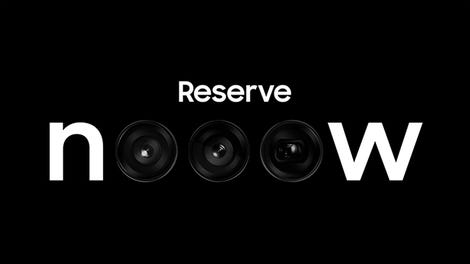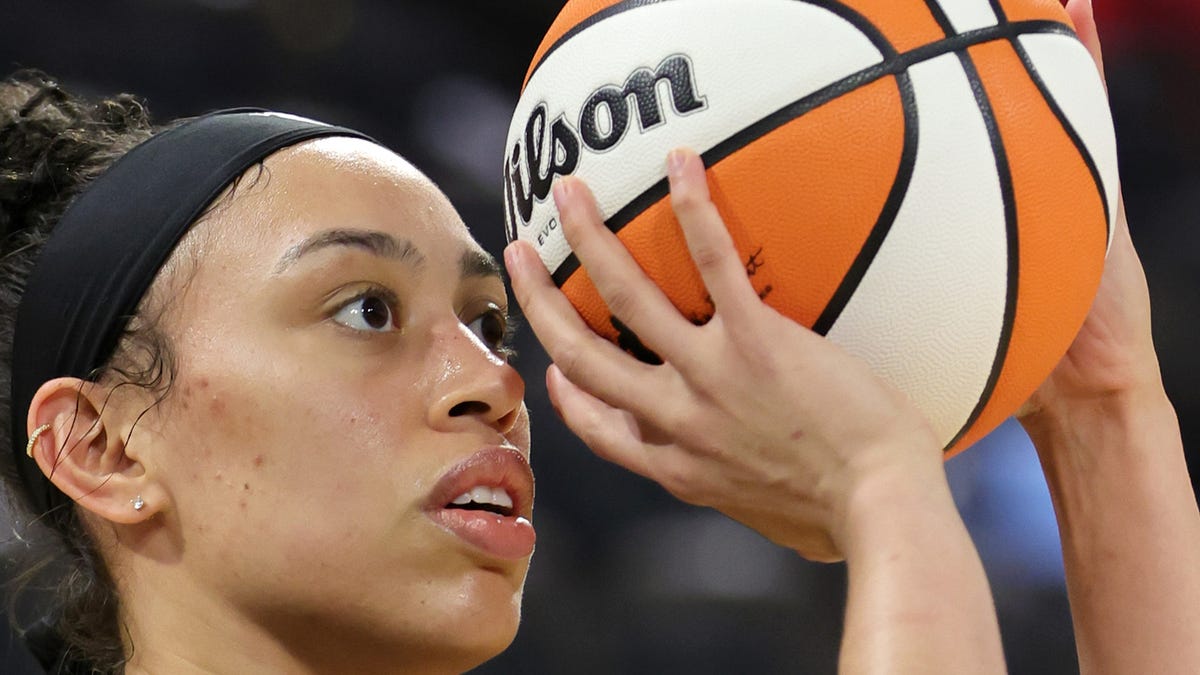The Las Vegas Aces kicked off the WNBA free agency negotiation period on Saturday, Jan. 21, by kicking Dearica Hamby from the sidewalks of Sin City to the curbs of the City of Angels. Neither “The Heave,” which made Hamby into both a fan favorite and a household name among league aficionados, nor her repeat Sixth Woman of the Year awards, two All-Star designations, or 2022 championship saved her from an unceremonious heave-ho by the Vegas organization.
The Aces’ front office dealt Hamby and a first-round pick in the 2024 WNBA Draft to the Los Angeles Sparks in exchange for Amanda Zahui B. and a second-round pick in the 2024 draft.
Hamby has accused the Aces of pregnancy discrimination
For Hamby, the issue is not the trade; she acknowledges that roster moves are part of the business. It is the way in which it transpired, though, that stoked her grievance. In an Instagram post, the 29-year-old forward alleged that members of the Aces’ front office “lied to, bullied, manipulated, and discriminated” against her because of her pregnancy.
“The unprofessional and unethical way that I have been treated has been traumatizing,” wrote Hamby, who also claimed that Aces management accused her of knowingly signing a contract extension while pregnant, not upholding her end of the deal by becoming pregnant during its term, and drilled with questions over her use of contraception and whether her pregnancy was planned.
G/O Media may get a commission

Up to $100 credit
Samsung Reserve
Reserve the next gen Samsung device
All you need to do is sign up with your email and boom: credit for your preorder on a new Samsung device.
Hamby’s transparency and honesty, she wrote, were “met with coldness, disrespect, and disregard from members of management.”
Hamby isn’t the first player to accuse her team of problems with her pregnancy
In other words, her pregnancy was a problem, and Hamby is not the first WNBA player to claim untoward treatment during pregnancy or motherhood. In 2019, Skylar Diggins-Smith disclosed that she had played the entire 2018 season while pregnant, unbeknownst to the Dallas Wings, who had no reason to question her capacity. Diggins-Smith maintained her stellar on-court production that season: She started all 32 games and averaged 34.1 minutes, 17.9 points, 6.2 assists, 3.3 rebounds, and 1.4 steals per game.
In 2019, Diggins-Smith claimed in a series of tweets (from a Twitter account that no longer exists) that the Wings organization accused her of quitting on her team when she did not return from maternity leave quickly enough for their taste. “Not knowing I took two FULL months away from everything because of postpartum depression,” she tweeted. “With limited resources to help me be successful mentally/physically.”
Although she received what many women in the U.S. do not – a full salary during a several-month maternity leave – the Wings organization’s handling of her decision to become a working mother left Diggins-Smith wanting out. She demanded a trade to the Phoenix Mercury ahead of the 2020 WNBA season, where amenities for working and/or nursing mothers, including a child-care facility, have been long present.
“Phoenix, the organization –for as long as I’ve competed against them, as long as I’ve known them and, now, being a part of it — has always had a great setup and has always been a great family organization,” Diggins-Smith told me in a May 2020 interview. “So with me having a child … that was something that was a huge priority. It’s great playing under a mom in Sandy Brondello and having another mom, Julie (Hairgrove), as an assistant coach, who has children, and a few of my teammates have children. … You feel like you’re being seen, you feel like you’re being heard, and those resources show that they care about you.”
Alarmingly, Hamby accuses women in the Aces organization of being primary purveyors of the harsh treatment she claims to have received, stating: “To be treated this way … BY WOMEN who are mothers, who have ‘claimed to be in these shoes,’ who preach family, chemistry, and women’s empowerment … leaves me sick to my stomach.”
What does the WNBA CBA say?
It is a damning statement not just against the Las Vegas franchise, but the WNBA as a whole. The 2020 CBA, to which Hamby refers in her Instagram post, includes provisions for maternity leave, motherhood, and family planning that exceed what most working mothers in the U.S. ever receive. At least on paper, the provisions serve as a blueprint for what companies should be providing all working mothers. Yet, the league has much work to do toward actualizing the content of the 2020 CBA. WNBA teams and the league itself must reckon with a new reality.
As it is, injuries are accepted as a part of the game, and they cause players to miss days, weeks, months, or even a season. Franchises are already accustomed to patching roster holes while players rehab and recover. Thus, why should absences due to maternity be treated differently?
Article X, on health benefits, “Section 2: Pregnancy Disability Benefit,” of the 2020 CBA stipulates that any WNBA player who is unable to fulfill her contractual duties due to pregnancy will receive a full base salary as noted in the “Standard Player Contract.” Article X, Section 2, further states that players who are traded during the time in which she is unable to perform basketball duties will have to forego “merit bonuses” unless she plays in at least one regular-season game.
Hamby claims in her Instagram post that team management did not foresee her taking the court in the 2023 season, despite her stated plans to do just that. But she is not the first WNBA player to have a team’s commitment withdrawn in the wake of announcing a pregnancy. The WNBA, in fact, launched its first season with one of its most talented and hotly-promoted stars sidelined because of pregnancy.
Remember what happened to Sheryl Swoopes?
Naismith Memorial Basketball Hall of Famer and four-time champion Sheryl Swoopes missed most of her inaugural season, and the sports world (dominated by men) went nuts. Quippy headlines about Swoopes’s pregnancy – some with distasteful rhymes, like “no hoops for Swoopes,” or silly alliteration such as “pregnant pause,” abounded. Like Hamby is experiencing now, Swoopes’ organization (the now-defunct Houston Comets, which the NBA’s Rockets organization operated), hedged on its commitment to its thoroughly-hyped, Olympic gold medal-winning star.
The day after learning of Swoopes’s pregnancy, a Rockets spokesperson, Angela Blakeney, said in a newspaper interview: “I don’t want people to assume that she has been assigned to this team – because she hasn’t.” (In 1997, the WNBA built its inaugural rosters by assigning two players to each of the league’s inaugural eight teams.) Despite Swoopes then being a married woman of 25, the media delved deep into questions about the planned or unplanned nature of her pregnancy. WNBA president Val Ackerman, though, wished Swoopes a “healthy and comfortable pregnancy,” and stated an eagerness to see her on the court when ready.
Swoopes gave birth to her son, Jordan, on June 25, 1997, less than a week before the league’s inaugural tipoff. She made her WNBA debut late in the regular season, playing nine games off the bench for averages of about 14 minutes and seven points per game. Punditry, then, shifted to inquiries about her fitness to parent a baby while working in a gym atmosphere and traveling frequently.
That’s right. While Hamby and Diggins-Smith allege they were treated as if they were not doing enough in terms of working out or preparing to return to their respective teams, Swoopes was questioned about whether she would be a good mother because of her job as an oft-traveling professional athlete. Discussions floated about her fitness to parent, and whether her job created an unhealthy environment for her newborn child. Former NBA player Reggie Miller, serving in an analyst’s role, offered his uninvited views: “This is just a game we play,” Miller said. “Life and motherhood are so much more important.”
His comments drew the ire of working women, who sent opinion letters in droves to newspapers nationwide, expressing outrage over Miller’s choice to insert his opinion on matters which do not concern him, and on decisions, he, as a man, would never have to make.
Fast-forward some decades, and a WNBA player is now accusing her team’s management of perpetuating views about pregnancy that do not fully embrace a woman’s desire to prioritize dual roles: athlete and mother. The WNBA, when contacted with a request for comment on Sunday, Jan. 22, stated that the league had “not yet issued a statement,” but would share it “if/when” it does. The Aces, meanwhile, did not respond on Sunday to a similar request for comment.
What is the WNBA doing about it?
The WNBPA announced on Saturday that it will review the “serious concerns” alleged by Hamby, and embark upon a “comprehensive investigation” into whether her rights – under the 2020 CBA, as well as state and federal laws – were violated.
Amid an exciting free agency negotiating period and improvements for players, including higher salaries, coming into fuller effect under the aforementioned CBA, Hamby’s accusations against the Aces should be considered worrisome – not just for fans of the WNBA, but for working women striving to succeed in society’s business landscape which just doesn’t seem to know what to do with them. The time has come for the league to figure it out, and lead on these issues – off paper. Prior to the league’s current era, players delayed parenthood until after retirement, risking the possibility of it being too late to become pregnant, in the era when egg freezing was unavailable or unaffordable.
League legend Sue Bird has spoken openly about freezing eggs – a wise choice for a woman who retired from professional basketball after the age of 35, the year when pregnancy is medically considered “geriatric.” But not all players wish to delay pregnancy or parenthood for their careers, and the provisions in the new CBA support the reality that the WNBA is a league of women of childbearing age. Thus, it is time for the league to envisage a new paradigm – an apotheosis that employs creative marketing and scheduling strategies to compensate for teams’ revolving casts.
Considering that many players still compete year-round, playing overseas during the WNBA offseason, and the retaliatory treatment Hamby claims to have faced, adding two additional roster spots per team would be a good place to start.



